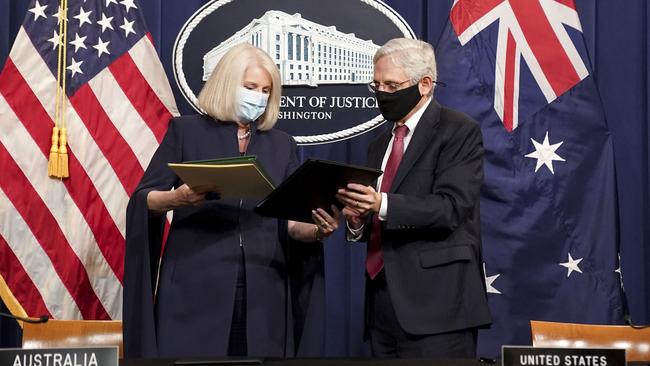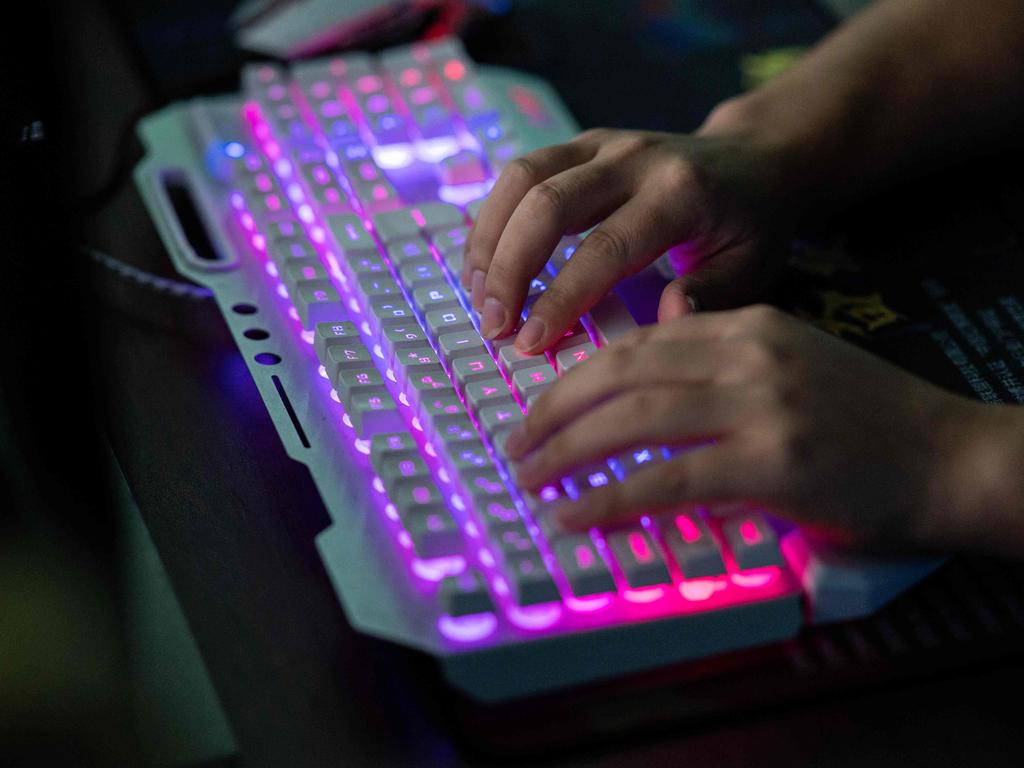Australia more exposed to cyber attack after AUKUS: Karen Andrews
Karen Andrews warns Australia is more exposed to major cyber-attack over AUKUS as she signs online security deal with US.

Australia is more exposed to a major cyber-attack after joining the AUKUS security pact with the US and the UK, home affairs Minister Karen Andrews has warned, amid growing concern about hostile cyber attacks from China and Russia on critical infrastructure.
In Washington to sign the Cloud Act agreement with the US, which will make it easier for US and Australian law enforcement agencies to share online information about potential criminals, Ms Andrews said Australia’s energy grid was a likely target of a future attack.
“We know that there is some concern in the Indo-Pacific region about the AUKUS arrangement, so it’s quite possible it will lead to greater attacks on Australia, whether or not that is specifically targeted to us or because Australia is so closely aligned with the US is yet to be determined,” she told The Australian.
“Our intelligence and cyber security agencies assess it is no longer a matter of if an attack will occur, but rather when,” she said earlier, in a speech at the Centre for Strategic and International Studies on Thursday.
Ms Andrews called on democracies to “step up” to equip their law enforcement agencies with the power to respond to the growing threat of cyber crime and ransomware attacks, one of which crippled the US Colonial Pipeline in May.
“We must create a rules-based global digital order in which critical infrastructure is supported and defended when it comes under attack,” she said. “Not since the splitting of the atom has technological disruption created so much opportunity, but also presented so many challenges.”
Ms Andrews said in Australia phone scam incidents had doubled in 2021 and since 2019 the parliament, logistics companies, small business, hospitals, utilities, school and a university had come under attack, including Queensland’s CS Energy last month, blamed on Russian or Chinese hackers.
“We are very conscious of what China is doing and will continue to monitor it very closely, but it would be wrong to focus on one nation because that would make us complacent,” the Minister said.
“Cyber is an opportunity for China to disrupt what is happening in Australia,” she said, pointing to the Microsoft Exchange hack earlier this year as part of a growing trend. The Five Eyes nations, which includes Australia and the US, blamed on Chinese state actors.
The Minister played down privacy concerns about the new agreement, which motivated some European criticism of the US initiative. “I don’t see it as loss of privacy, I genuinely do see it as enabling law enforcement agencies to gather info that they need for prosecution,” the Minister said.
Ms Andrews met US Attorney-General Merrick Garland a day earlier to sign the agreement, which is intended to “to prevent, detect, investigate and prosecute serious crime, including child sexual abuse, ransomware attacks, terrorism and the sabotage of critical infrastructure over the internet”, according to the US Department of Justice.
“This Agreement paves the way for more efficient cross-border transfers of data between the US and Australia so that our governments can more effectively counter serious crime, including terrorism, while adhering to the privacy and civil liberties values that we both share,” Mr Garland said.
Minister Andrews, who has responsibly for Australia’s international border, said she was “very comfortable” with sticking to the timetable for reopening, despite the spread of the Omicron.
“I’m firmly of view we need to get back to living our lives as quickly as we possibly can, we need borders reopened for economic growth, recovery and to reunite families,” she said.
Ms Andrews said she didn’t raise Julian Assange in her meeting with the Attorney-General, after deputy prime minister Barnaby Joyce spoke out in favour of his right to stay in the UK earlier this week.
“The government position is very clear: very respectful of the UK legal system, and it’s up to the US whether they want to continue to pursue extradition,” she said.








To join the conversation, please log in. Don't have an account? Register
Join the conversation, you are commenting as Logout